The Crucial BX200 (480GB & 960GB) SSD Review: Crucial's First TLC NAND SSD
by Billy Tallis on November 3, 2015 9:00 AM ESTPerformance Consistency
Starting things off, our performance consistency test saturates the drive with 4kB random writes for a full hour, with a queue depth of 32, the maximum supported by the AHCI protocol used by SATA and most PCIe drives. This puts the drive's controller under maximum stress and writes enough data to exhaust all free space and spare area on the drive. This is an unrealistic workload for any client use, but it provides a worst-case scenario for long-term heavy use, and it sheds light on how different SSD controllers behave and if their performance will hold up as they fill up.
The average of the last 400 seconds of the test gives us a steady-state IOPS rating that is usually very different from what the manufacturer specifies for a new, empty drive. We also quantify the consistency of the drive's random write performance, and provide plots of the performance over the course of the test.
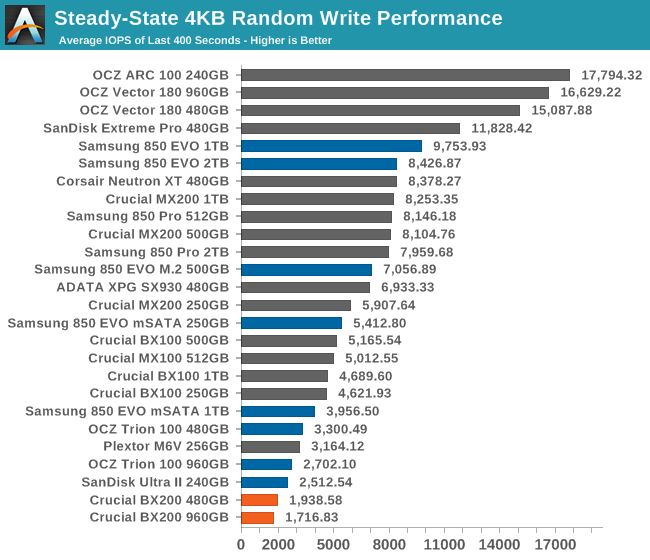
The BX200 is off to a poor start, with very low steady-state IOPS where the BX100 managed to place closer to the middle of the pack.
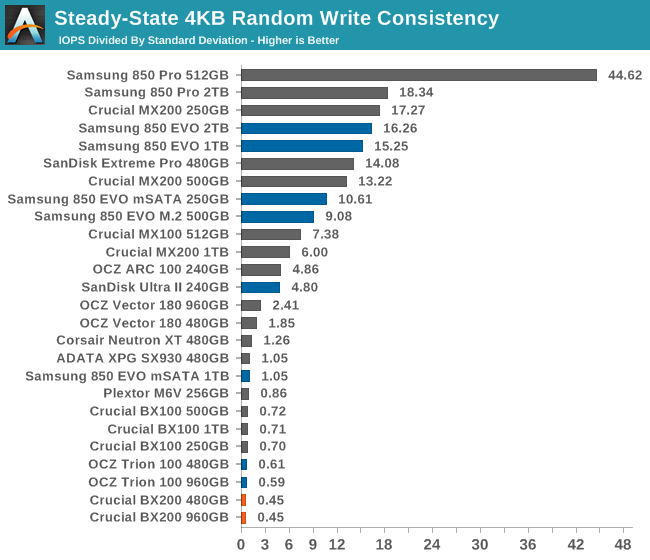
The BX200's consistency is also at the bottom of the chart, indicating that there's wide variability between its best and worst performance even after entering steady-state.
For a brief moment, the BX200 performs almost as advertised, and then for a few minutes it performs well for a budget drive, but when it runs out of cache and spare area, performance hits the floor.
Save for the periodic but infrequent excursions to 9k IOPS and 20-25k IOPS, the BX200's steady-state hovers between 200 and 700 IOPS: better than a hard drive, but not what we want to see from a SSD.


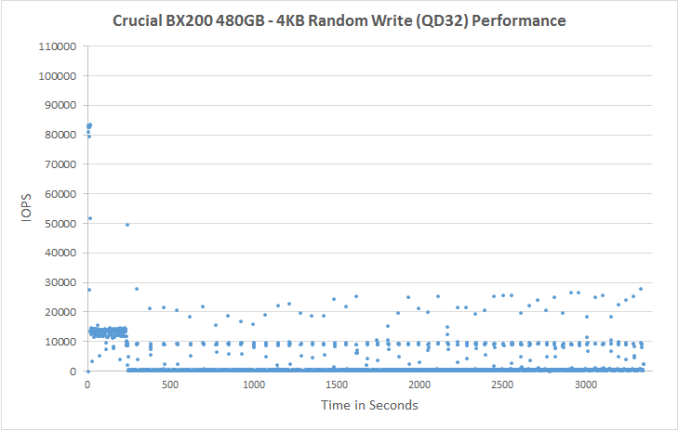
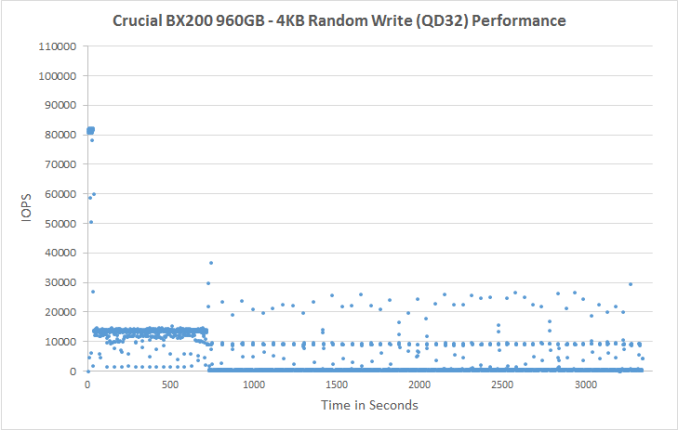
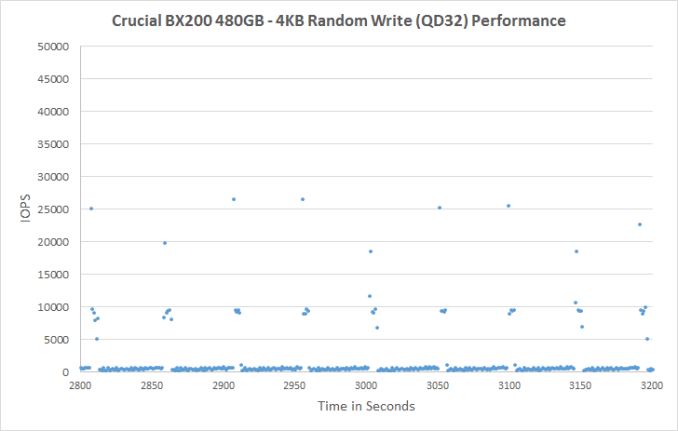
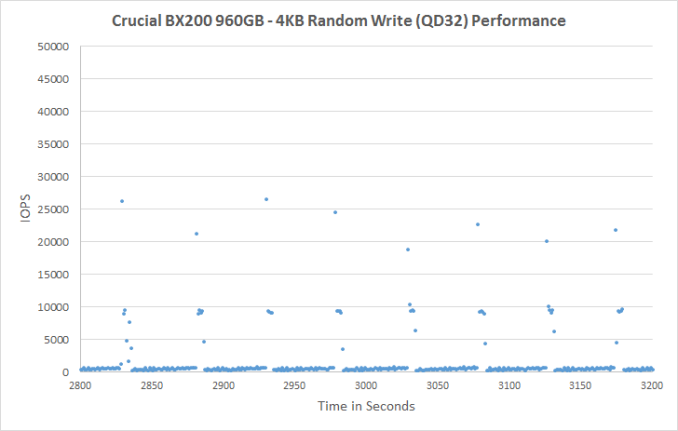








85 Comments
View All Comments
extide - Tuesday, November 3, 2015 - link
So, apparently the first "bad" crucial SSD. Oh wait, no, the second one, remember that V4 or whatever it was, heh.hojnikb - Tuesday, November 3, 2015 - link
This is miles ahead V4, because this is usable, while V4 was not.iLovefloss - Sunday, November 8, 2015 - link
Nah, Crucial still had their M4 which quite a few issues for many people.Glock24 - Tuesday, November 3, 2015 - link
Wow, didn't expect such a product from Crucial. The only other SSD that performs worse than a mechanical disk is the Kingston SSD V300 that is still being sold.hojnikb - Tuesday, November 3, 2015 - link
V300, despite its hate, is still *much* faster than any HDD out there.Glock24 - Tuesday, November 3, 2015 - link
Maybe you got lucky, but I bought one after reading some good reviews (before the nand change fiasco hit the news) and after a while I noticed something was wrong because of the painfully slow performance. It was giving me reads close to 100MB/s and writes on the 20MB/s range, and that's sequential performance. I usually do not notice any difference in tel world performance between different SSD models, but with the V300 was very notorious. Even the HDD I had in use at the time felt faster (Spinpoint F1 1TB). So no, the V300 is not faster than any HDD.hojnikb - Tuesday, November 3, 2015 - link
that was a faulty model or issue on your end. eve the crappiest models were good for atleast 75mbs of write....Gigaplex - Tuesday, November 3, 2015 - link
And most hard drives these days can beat 75MB/s sequential write.hojnikb - Wednesday, November 4, 2015 - link
sequential speeds matter very little, its the random performace that makes ssds fast. and those are orders of magnitude better, even with v300jabber - Tuesday, November 3, 2015 - link
Yeah I use V300's exclusively in SATA II based PCs and laptops as they will push 270MBps+ all day long. No point buying 850 EVOs there. Must have bought 50+ and all of them are still going strong.